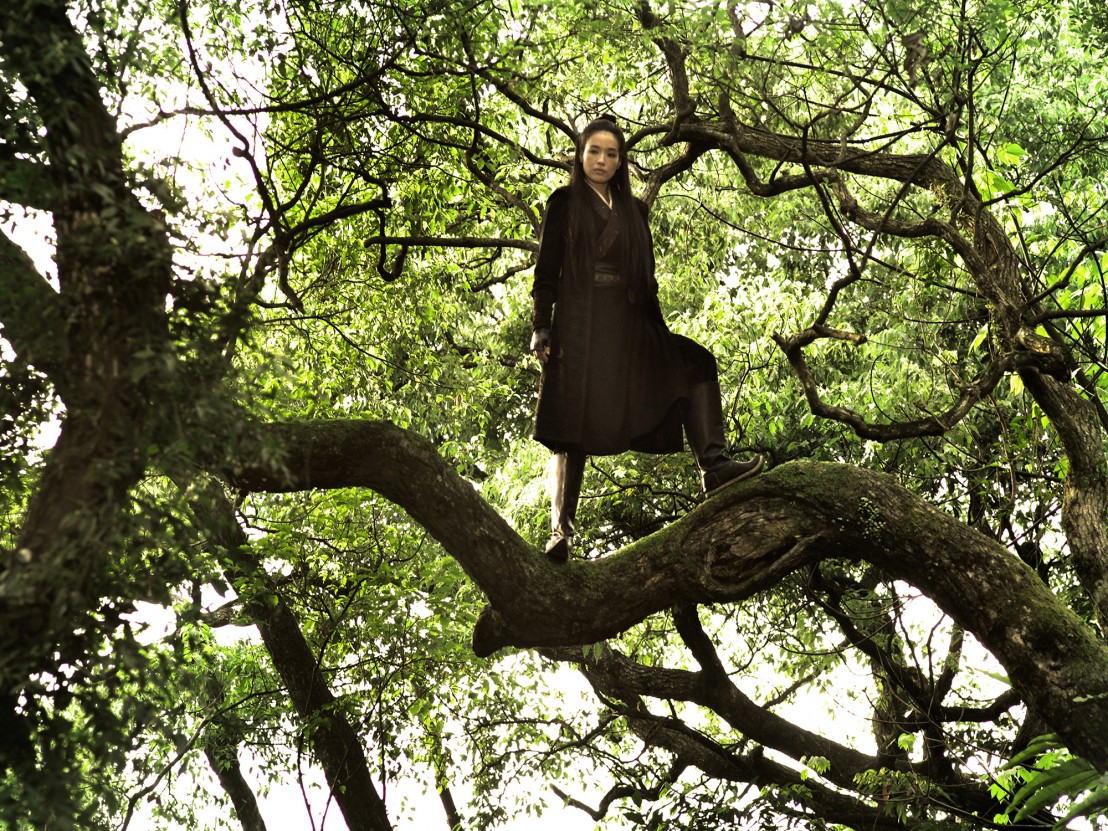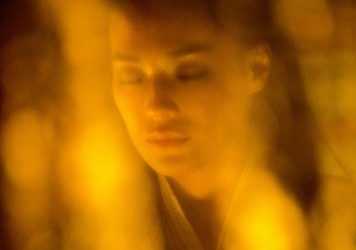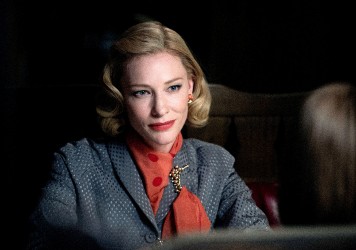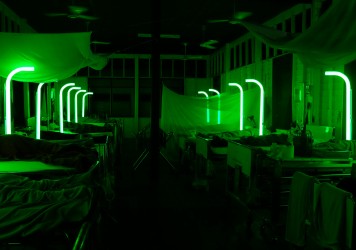
Taiwanese master Hou Hsiao-Hsien reinvents the martial arts movie, with utterly astonishing results.
I can’t recall the exact number, but for the first eight or nine shots of Hou Hsiao-Hsien’s eight-years-in-the-making anti-wuxia The Assassin, my arms – from fingertip all the way to elbow – began to tingle with nervous excitement. Within seconds of the film starting, questions darted through my mind: what the hell kind of film is this? How will the indelible imprint of its director manifest itself?
If things carry on like this, should we strap ourselves in for one of the greats of the new millennium? How could the film possibly keep up this high-intensity barrage of what, to get all superficial for a moment, are close to perfect images, sequenced with the kind of attentiveness and industry which make most filmmakers seem blind to the possibilities of what cinema, what choreography, what edits can achieve?
The first image is in black-and-white of two donkeys tied to a tree. It’s very much not the image you’d expect a movie like this to open on. It’s also in boxy academy ratio, which switches back to 16:9 throughout the film to denote temporal shifts in the narrative. (A tactic used by China’s Jia Zhang-ke in Mountains May Depart and Wes Anderson in The Grand Budapest Hotel).
The final image (in this short initial flurry) is when the red calligraphy characters of the title appear over a gorgeous landscape shot where colours are distributed perfectly around the frame, the glowing greens of the fields, the rich blues of the skies, and the rough browns of the rocks and dirt. It’s not that my pleasure ceased at that moment – on the contrary – it’s more that my senses were only just starting to attune themselves to the singular rhythms of this immaculate work.
Describing The Assassin as “challenging” would infer that the Hou was adopting a boilerplate narrative template and purposefully obfuscating matters so as to fit his alternative modus operandi. But the fact is, this exists out there alone, its only real precedent being the director’s previous movies, most obviously 1998’s sumptuous Qing dynasty brothel tour, Flowers of Shanghai. You might also see it as a remake of 2001’s Millennium Mambo, which also stars the great actress Shu Qi playing a character trying to reforge bonds with a world she left behind.
The allusions to genre convention are so scarce, it’s like Hou is re-inventing the form from its primordial constituents just to suit his uniquely lugubrious mode. And if you think that the required kineticism of a martial arts movie stands entirely at odds with a director who builds movies on a bedrock of long, wide, roving, observant takes and people scattered around the frame, then think again.
The story, such as it is, concerns tensions between rival hamlets in ninth century China, and the stealthy movements of a lone, black-clad female assassin, Nie Yinniang, who’s been trained to act as a political agent provocateur. Despite her dogged allegiance to a nun who kidnapped her as a child, and the swift, uncomplicated style of her hits (usually a single, blink-and-you’ll-miss-it swish of a dagger), she’s been activated to strike against her estranged brother, which causes long-dormant familial emotions to bubble to the fore. Just because Hou makes it much easier to appreciate the cavalcade of visual splendour he hauls to the screen, the plot is extremely vital when it comes to justifying Yinniang’s melancholic demeanour, which is what the film is about.
Yet the greatness of The Assassin comes from the feeling that, visually, everything is in its right place, and that Hou is somehow directing the wind, directing the billowing smoke, directing the flames from candles, directing the dance of curtains and drapes, directing the leaves shimmering on the trees, directing the sounds of the forest, directing the noises that faintly emanate from rooms behind rooms behind rooms. He doesn’t tell a story so much as he creates a world, places you inside it and then snatches away your roadmap.
One thing he does not direct is blood, because there is barely a drop of it spilled in the film. And that’s not because it’s not there, more due to the fact that it’s just obscured from view. One early fight scene sees Yinniang break into her brother’s compound and take on her retinue of guards. Hou films it in long shot and through a barrier of trees. You can hear it, but you can barely see it. And then, after a few seconds before matters have a chance to progress, he cuts away and moves on. There’s no interest in violence, there’s no interest in the consequences of violence, there’s only interest in violence as a political and romantic expedient. It’s the high point of Cannes 2015.
Published 22 May 2015

Our staff writers pick their personal favourites from this year’s festival.

Todd Haynes lights up the Croisette with this exemplary lesbian romance starring Cate Blanchett and Rooney Mara.

This neon-lit ghost story from Apichatpong Weerasethukal is another hushed adventure into the sublime.